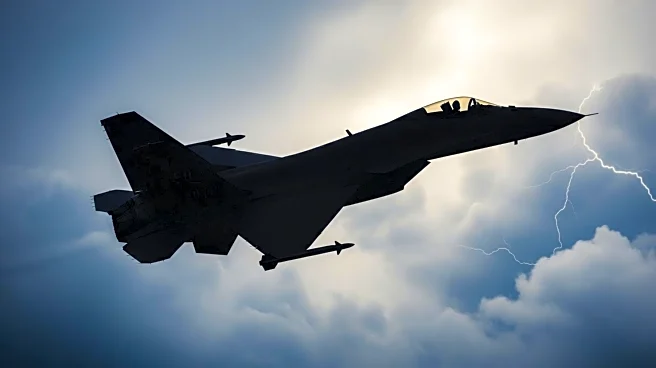What is the story about?
What's Happening?
The Trump administration has informed Congress of its intention to sell nearly $6 billion in weapons to Israel. This proposal includes $3.8 billion for 30 AH-64 Apache helicopters and $1.9 billion for 3,200 infantry assault vehicles. The arms package is part of ongoing U.S. support for Israel, which is facing increasing international isolation due to its military actions in Gaza. The weapons are not expected to be delivered for at least two to three years. This announcement comes as efforts to broker peace between Israel and Hamas have stalled, and amid international condemnation of Israel's recent military actions.
Why It's Important?
The proposed arms sale underscores the U.S.'s continued support for Israel despite growing international pressure and criticism over its actions in Gaza. This move could further strain relations with U.S. allies who have condemned Israel's military tactics. The sale is part of a larger $12 billion military assistance package approved this year, highlighting the strategic importance of Israel as a U.S. ally in the Middle East. However, it also raises concerns about the humanitarian impact of these weapons in the ongoing conflict.
What's Next?
The arms sale proposal will undergo informal reviews by Congress before proceeding to a formal process by the State Department. Meanwhile, President Trump plans to meet with Turkish President Recep Tayyip Erdogan to discuss other military deals, including Boeing aircraft and F-16 fighter jets. The international community's response to the arms sale and Israel's actions in Gaza may influence future U.S. foreign policy decisions.
Beyond the Headlines
The arms sale is part of a 10-year agreement between the U.S. and Israel, which is nearing its end. This long-term military support reflects the deep strategic ties between the two nations. However, the ethical implications of supplying weapons to a country accused of committing genocide in Gaza are significant, potentially affecting the U.S.'s global standing and its moral authority in international human rights discussions.















